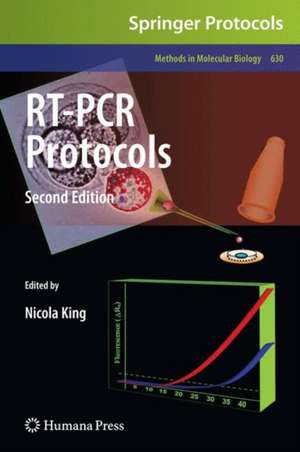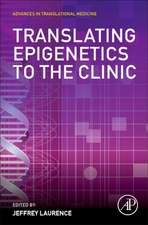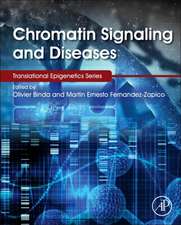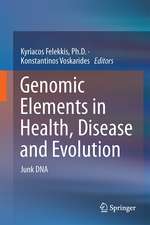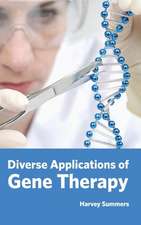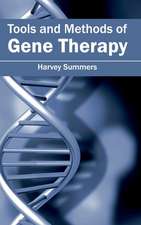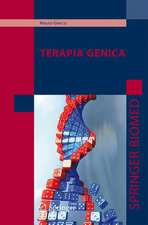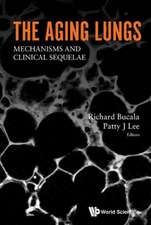RT-PCR Protocols: Second Edition: Methods in Molecular Biology, cartea 630
Editat de Nicola Kingen Limba Engleză Hardback – 22 mar 2010
User friendly and up-to-date, RT-PCR Protocols, Second Edition acts as a handy companion to scientists from numerous diverse backgrounds who wish to explore further the marvels of gene expression.
| Toate formatele și edițiile | Preț | Express |
|---|---|---|
| Paperback (1) | 786.86 lei 43-57 zile | |
| Humana Press Inc. – 23 aug 2016 | 786.86 lei 43-57 zile | |
| Hardback (1) | 1109.44 lei 43-57 zile | |
| Humana Press Inc. – 22 mar 2010 | 1109.44 lei 43-57 zile |
Din seria Methods in Molecular Biology
- 9%
 Preț: 791.63 lei
Preț: 791.63 lei - 23%
 Preț: 598.58 lei
Preț: 598.58 lei - 20%
 Preț: 882.98 lei
Preț: 882.98 lei -
 Preț: 252.05 lei
Preț: 252.05 lei - 5%
 Preț: 802.70 lei
Preț: 802.70 lei - 5%
 Preț: 729.61 lei
Preț: 729.61 lei - 5%
 Preț: 731.43 lei
Preț: 731.43 lei - 5%
 Preț: 741.30 lei
Preț: 741.30 lei - 5%
 Preț: 747.16 lei
Preț: 747.16 lei - 15%
 Preț: 663.45 lei
Preț: 663.45 lei - 18%
 Preț: 1025.34 lei
Preț: 1025.34 lei - 5%
 Preț: 734.57 lei
Preț: 734.57 lei - 18%
 Preț: 914.20 lei
Preț: 914.20 lei - 15%
 Preț: 664.61 lei
Preț: 664.61 lei - 15%
 Preț: 654.12 lei
Preț: 654.12 lei - 18%
 Preț: 1414.74 lei
Preț: 1414.74 lei - 5%
 Preț: 742.60 lei
Preț: 742.60 lei - 20%
 Preț: 821.65 lei
Preț: 821.65 lei - 18%
 Preț: 972.30 lei
Preț: 972.30 lei - 15%
 Preț: 660.49 lei
Preț: 660.49 lei - 5%
 Preț: 738.41 lei
Preț: 738.41 lei - 18%
 Preț: 984.92 lei
Preț: 984.92 lei - 5%
 Preț: 733.29 lei
Preț: 733.29 lei -
 Preț: 392.60 lei
Preț: 392.60 lei - 5%
 Preț: 746.26 lei
Preț: 746.26 lei - 18%
 Preț: 962.66 lei
Preț: 962.66 lei - 23%
 Preț: 860.22 lei
Preț: 860.22 lei - 15%
 Preț: 652.64 lei
Preț: 652.64 lei - 5%
 Preț: 1055.50 lei
Preț: 1055.50 lei - 23%
 Preț: 883.87 lei
Preț: 883.87 lei - 19%
 Preț: 491.89 lei
Preț: 491.89 lei - 5%
 Preț: 1038.86 lei
Preț: 1038.86 lei - 5%
 Preț: 524.16 lei
Preț: 524.16 lei - 18%
 Preț: 2122.34 lei
Preț: 2122.34 lei - 5%
 Preț: 1299.23 lei
Preț: 1299.23 lei - 5%
 Preț: 1339.12 lei
Preț: 1339.12 lei - 18%
 Preț: 1390.26 lei
Preț: 1390.26 lei - 18%
 Preț: 1395.63 lei
Preț: 1395.63 lei - 18%
 Preț: 1129.65 lei
Preț: 1129.65 lei - 18%
 Preț: 1408.26 lei
Preț: 1408.26 lei - 18%
 Preț: 1124.92 lei
Preț: 1124.92 lei - 18%
 Preț: 966.27 lei
Preț: 966.27 lei - 5%
 Preț: 1299.99 lei
Preț: 1299.99 lei - 5%
 Preț: 1108.51 lei
Preț: 1108.51 lei - 5%
 Preț: 983.76 lei
Preț: 983.76 lei - 5%
 Preț: 728.16 lei
Preț: 728.16 lei - 18%
 Preț: 1118.62 lei
Preț: 1118.62 lei - 18%
 Preț: 955.25 lei
Preț: 955.25 lei - 5%
 Preț: 1035.62 lei
Preț: 1035.62 lei - 18%
 Preț: 1400.35 lei
Preț: 1400.35 lei
Preț: 1109.44 lei
Preț vechi: 1167.83 lei
-5% Nou
Puncte Express: 1664
Preț estimativ în valută:
212.36€ • 230.75$ • 178.50£
212.36€ • 230.75$ • 178.50£
Carte tipărită la comandă
Livrare economică 21 aprilie-05 mai
Preluare comenzi: 021 569.72.76
Specificații
ISBN-13: 9781607616283
ISBN-10: 1607616289
Pagini: 330
Ilustrații: XI, 341 p.
Dimensiuni: 178 x 254 x 26 mm
Greutate: 0.79 kg
Ediția:2nd ed. 2010
Editura: Humana Press Inc.
Colecția Humana
Seria Methods in Molecular Biology
Locul publicării:Totowa, NJ, United States
ISBN-10: 1607616289
Pagini: 330
Ilustrații: XI, 341 p.
Dimensiuni: 178 x 254 x 26 mm
Greutate: 0.79 kg
Ediția:2nd ed. 2010
Editura: Humana Press Inc.
Colecția Humana
Seria Methods in Molecular Biology
Locul publicării:Totowa, NJ, United States
Public țintă
Professional/practitionerCuprins
The RT-PCR Detective: Hunting Down the Best Method.- Single Cell RT-PCR on Mouse Embryos: A General Approach for Developmental Biology.- Poly(A) cDNA Real-Time PCR for Indicator Gene Measurement in Cancer.- Transcriptome Profiling of Host–Microbe Interactions by Differential Display RT-PCR.- Quantitative RT-PCR Methods for Mature microRNA Expression Analysis.- Detection of Influenza A Virus Neuraminidase and PB2 Gene Segments by One Step Reverse Transcription Polymerase Chain Reaction.- Detection and Identification of CD46 Splicing Isoforms by Nested RT-PCR.- Simultaneous Detection of Bluetongue Virus RNA, Internal Control GAPDH mRNA, and External Control Synthetic RNA by Multiplex Real-Time PCR.- Detection of West Nile Viral RNA from Field-Collected Mosquitoes in Tropical Regions by Conventional and Real-Time RT-PCR.- Detection of Antisense RNA Transcripts by Strand-Specific RT-PCR.- RT-PCR Amplification and Cloning of Large Viral Sequences.- The RT-PCR Mathematician: Assessing Gene and RNA Expression.- One-Step RT-LATE-PCR for mRNA and Viral RNA Detection and Quantification.- Changes in Gene Expression of Caveolin-1 After Inflammatory Pain Using Quantitative Real-Time PCR.- Real-Time Quantitative Reverse Transcriptase Polymerase Chain Reaction.- The Use of Comparative Quantitative RT-PCR to Investigate the Effect of Cysteine Incubation on GPx1 Expression in Freshly Isolated Cardiomyocytes.- The Renaissance of Competitive PCR as an Accurate Tool for Precise Nucleic Acid Quantification.- The RT-PCR Master Chef: Finding the Right Ingredients.- Skeletal Muscle RNA Extraction in Preparation for RT-PCR.- Reverse Transcription of the Ribonucleic Acid: The First Step in RT-PCR Assay.- Primer Design for RT-PCR.- Hot Start PCR.- Real-time RT-PCR for Automated Detection ofHIV-1 RNA During Blood Donor Screening.
Recenzii
From the reviews of the second edition:
“The second edition of RT-PCR protocols and attempts to cover the most commonly used RT-PCR protocols, giving both beginners and experts a deeper understanding of the experimental set-up. … There are often flow diagrams or pictures to aid understanding and the references are helpful, if you require additional information. … a good investment for any lab interested in ensuring that their RT-PCR reactions are as productive and well-controlled as possible. … Overall a useful and detailed text written in an informative and helpful style.” (Hayley Evans, Immunology News, May, 2011)
“The second edition of RT-PCR protocols and attempts to cover the most commonly used RT-PCR protocols, giving both beginners and experts a deeper understanding of the experimental set-up. … There are often flow diagrams or pictures to aid understanding and the references are helpful, if you require additional information. … a good investment for any lab interested in ensuring that their RT-PCR reactions are as productive and well-controlled as possible. … Overall a useful and detailed text written in an informative and helpful style.” (Hayley Evans, Immunology News, May, 2011)
Textul de pe ultima copertă
Once a tedious, highly skilled operation, reverse-transcription polymerase chain reaction (RT-PCR) has become a routine and invaluable technique used in most laboratories. In RT-PCR Protocols, Second Edition, expert researchers fully update the technologies presented in the popular previous edition, such as competitive RT-PCR, nested RT-PCR, RT-PCR from single cells, and RT-PCR for cloning. In addition, newer technologies are also explored, including multiplex RT-PCR, RT-LATE-PCR, and the greatly advanced field of real-time quantitative RT-PCR, while recent advances in creating the optimum RT-PCR reaction, e.g. RNA extraction, primer design, and reverse transcription, end the book with their indispensable input. Written in the highly successful Methods in Molecular Biology™ series format, chapters include brief introductions to their respective topics, lists of the necessary materials and reagents, step-by-step, readily reproducible protocols, and notes sections, highlighting tips on troubleshooting and avoiding known pitfalls.
User friendly and up-to-date, RT-PCR Protocols, Second Edition acts as a handy companion to scientists from numerous diverse backgrounds who wish to explore further the marvels of gene expression.
User friendly and up-to-date, RT-PCR Protocols, Second Edition acts as a handy companion to scientists from numerous diverse backgrounds who wish to explore further the marvels of gene expression.
Caracteristici
Features all the latest and hottest technology used in conventional and real-time RT-PCR Provides a broad scope covered in good depth, from detection of minute qualities of microRNA to the analysis of complex cell populations Serves as a comprehensive guide to setting up, running and analyzing an RT-PCR experiment
